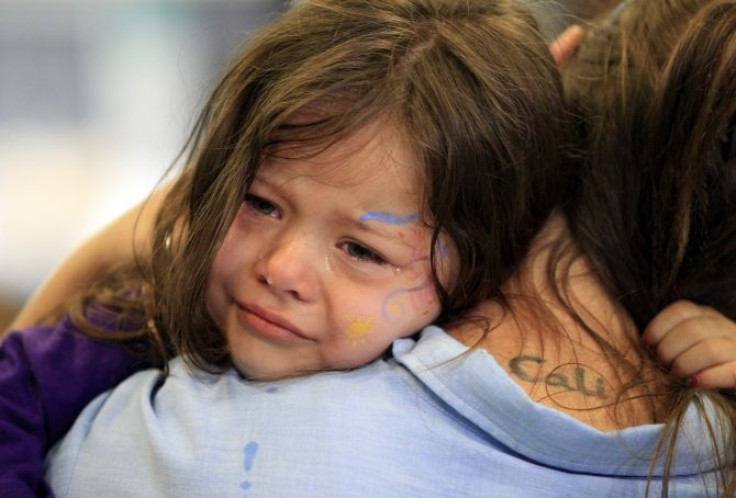Teaching Coping Skills Can Help Children Deal With Stress

Many children are not well-equipped to deal with everyday life anxiety like saying good bye to a parent, being left-out of a social circle and being alone in a dark room. Experts from Melbourne University recommend that children must be taught how to handle these situations so that they cope with these stresses.
Erica Frydenberg and Janice Deans from the Melbourne University have released a guide called "Developing Everyday Coping Skills in the Early Years" that gives parents tips about how to teach coping skills to young children.
“Learning coping skills at a young age means children can be equipped for optimal growth and development. This is increasingly important in Western communities, where depression and other mental health issues are being experienced in epidemic proportions," Associate Professor Frydenberg said.
The authors recommend that children must be encouraged to talk about their feelings in a group setting.
Using techniques like describing feelings through gestures can help a child understand a stressful situation and how to best deal with it.
“Those children that need additional social and emotional support demand a significant amount of teacher time. Teachers need to be supported to provide for these children,” she said.
In the U.S., about 11 percent of all children between ages 11 and 18 have had depression at some point in their lives.
“Developing a positive orientation, where the child is able to focus on coping rather than on distress, can help children develop skills they can take with them throughout their lives,” Frydenberg said in a news release.
Irritability, withdrawal from friends, missed school or poor grades, low self-esteem, frequent complains about headaches can be a sign of early depression, according to National Alliance on Mental Illness.



























